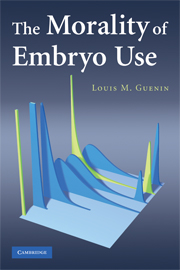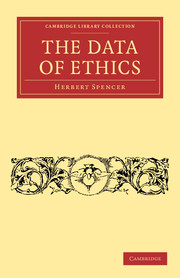The Morality of Embryo Use
Is it permissible to use a human embryo in stem cell research, or in general as a means for benefit of others? Acknowledging each embryo as an object of moral concern, Louis M. Guenin argues that it is morally permissible to decline intrauterine transfer of an embryo formed outside the body, and that from this permission and the duty of beneficence, there follows a consensus justification for using donated embryos in service of humanitarian ends. He then proceeds to show how this justification commands assent even within moral and religious views commonly thought to oppose embryo use. Beneath his moral reasoning lies a carefully constructed metaphysical foundation incorporating accounts of the ontology of development, embryos, and species. He also incisively discusses nonreprocloning, reprocloning, ectogenesis, and related scientific frontiers. This compelling philosophical study will interest all concerned to understand virtue and obligation in the relief of suffering.
- Deals with arguably the most contentious issue of our time - the use of human embryos
- Probes the most fundamental philosophical questions such as the concept of the individual
- A dispassionate study of cloning, oocyte contribution, and other controversial practices
Reviews & endorsements
'Louis Guenin's book, The Morality of Embryo Use, provides a carefully argued and scholarly exposition of the issues. As an ethics adviser on medical research, and also as a member of the Department of Microbiology and Molecular Genetics at Harvard Medical School, Guenin is well-qualified to do this, and he brings to the task the resources of biology, genetics, logic and metaphysics.' Philosophy
Product details
September 2008Paperback
9780521694278
288 pages
227 × 150 × 17 mm
0.46kg
Available
Table of Contents
- Preface
- 1. Preliminaries
- 2. Epidosembryos
- 3. Individuation
- 4. Respect for specific life
- 5. Consensus
- 6. Clones
- 7. Analyzing alternatives
- 8. Shaping norms.







